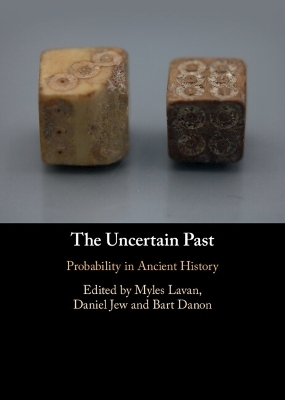
The Uncertain Past
Cambridge University Press (Verlag)
978-1-009-10065-6 (ISBN)
Historians constantly wrestle with uncertainty, never more so than when attempting quantification, yet the field has given little attention to the nature of uncertainty and strategies for managing it. This volume proposes a powerful new approach to uncertainty in ancient history, drawing on techniques widely used in the social and natural sciences. It shows how probability-based techniques used to manage uncertainty about the future or the present can be applied to uncertainty about the past. A substantial introduction explains the use of probability to represent uncertainty. The chapters that follow showcase how the technique can offer leverage on a wide range of problems in ancient history, from the incidence of expropriation in the Classical Greek world to the money supply of the Roman empire.
Myles Lavan is Reader in Ancient History at the University of St. Andrews. He is the author of Slaves to Rome: Paradigms of Empire in Roman Culture (Cambridge, 2013) and co-editor of Roman and Local Citizenship in the Long Second Century CE (2021) and Cosmopolitanism and Empire: Universal Rulers, Local Elites and Cultural Integration in the Ancient Near East and Mediterranean (2016). Daniel Jew is Senior Lecturer in the Department of History, and Director of Studies at the College of Alice & Peter Tan, within the National University of Singapore. He is co-editor of M. I. Finley: An Ancient Historian and his Impact (Cambridge, 2016) and author of several papers on agriculture, craft, women and slaves in the ancient Greek economy. He is writing a monograph on carrying capacity in Athens. Bart Danon is Assistant Professor in Ancient History at Groningen University. He works on the social and economic history of the Roman Empire, with a focus on inequality, the political economy, urbanisation and slavery.
1. Probabilistic modelling in ancient history Daniel Jew and Myles Lavan; Part I. Uncertainty: 2. Assessing the scale of property confiscation in the ancient Greek world Emily Mackil; 3. Senators and senatorial wealth at Pompeii: reconstructing the local wealth distribution Bart Danon; 4. The Roman coinage under the Antonines revisited: an economy of silver, not gold Gilles Bransbourg; Part II. Variability and Missing Data: 5. Children and their impact on family finances in Roman Egypt Paul V. Kelly; 6. The financial sustainability of grain funds: a model-based approach using Monte Carlo simulation N. Solonakis, A. Toure and M. Elhouderi; 7. New approaches to the urban population and urbanization rate of the Roman Empire, AD 1 to 200 J. W. Hanson; 8. Afterword Bart Danon, Daniel Jew and Myles Lavan.
| Erscheinungsdatum | 21.11.2022 |
|---|---|
| Zusatzinfo | Worked examples or Exercises; 80 Tables, black and white; 10 Maps; 60 Line drawings, black and white |
| Verlagsort | Cambridge |
| Sprache | englisch |
| Maße | 176 x 252 mm |
| Gewicht | 730 g |
| Themenwelt | Geschichte ► Allgemeine Geschichte ► Vor- und Frühgeschichte |
| Geisteswissenschaften ► Geschichte ► Geschichtstheorie / Historik | |
| Geisteswissenschaften ► Geschichte ► Regional- / Ländergeschichte | |
| ISBN-10 | 1-009-10065-3 / 1009100653 |
| ISBN-13 | 978-1-009-10065-6 / 9781009100656 |
| Zustand | Neuware |
| Haben Sie eine Frage zum Produkt? |
aus dem Bereich


